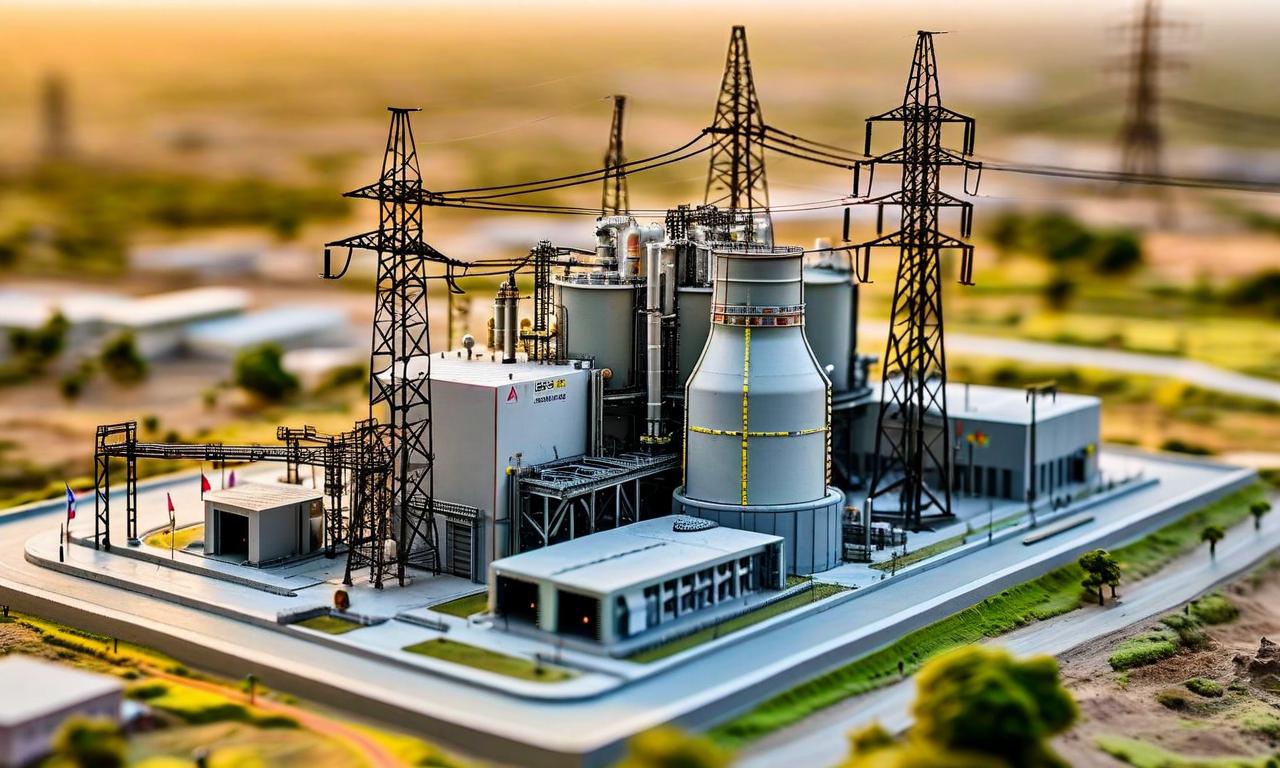Six Private Firms, Including Reliance and Adani, Eye Bharat Small Modular Reactor Projects
Six private companies, including Reliance Industries and Adani Power, have expressed interest in establishing Bharat Small Modular Reactors (BSMRs) in India. This marks a potential shift towards private sector participation in the country's nuclear energy sector. BSMRs are compact, modular, and scalable nuclear reactors designed for increased flexibility and enhanced safety. This development could lead to diversification of the nuclear industry, accelerated development of SMRs, improved energy security, and technological advancements through public-private collaboration.

*this image is generated using AI for illustrative purposes only.
In a significant development for India's nuclear energy sector, six private companies have expressed interest in establishing Bharat Small Modular Reactors (BSMRs). This move marks a potential shift in the country's approach to nuclear power generation, with private sector participation gaining traction.
Key Players in the Mix
Among the interested parties are two of India's industrial giants:
- Reliance Industries: The multinational conglomerate, known for its diverse portfolio spanning energy, petrochemicals, retail, and telecommunications.
- Adani Power: A major player in India's power generation sector, part of the larger Adani Group.
These companies, along with four other undisclosed firms, are exploring opportunities in this innovative nuclear energy initiative.
Understanding Bharat Small Modular Reactors
Small Modular Reactors (SMRs) represent a new category of nuclear reactors designed for smaller footprints and increased flexibility. The Bharat Small Modular Reactors project aims to adapt this technology for Indian needs and conditions.
Key features of SMRs include:
- Compact Design: Smaller size compared to conventional nuclear reactors
- Modular Construction: Can be manufactured at a plant and transported to sites
- Scalability: Ability to add modules as energy demand grows
- Enhanced Safety: Often incorporate passive safety features
Implications for India's Energy Sector
The interest from private companies in BSMRs could have several implications:
- Diversification of Nuclear Industry: Traditionally dominated by state-owned enterprises, the nuclear sector might see increased private participation.
- Accelerated Development: Private sector involvement could potentially speed up the development and deployment of SMRs.
- Energy Security: BSMRs could contribute to India's energy security by providing a stable, low-carbon power source.
- Technological Advancement: Collaboration between public and private entities might foster innovation in nuclear technology.
Path Forward
While the expression of interest from these companies is a promising start, the road to establishing BSMRs in India is likely to be complex. Factors such as regulatory frameworks, safety considerations, and public perception will play crucial roles in shaping the future of this initiative.
As this story develops, it will be important to monitor how the government facilitates private sector participation while maintaining the stringent safety and security standards essential for nuclear energy projects.
The entry of private players like Reliance Industries and Adani Power into the nuclear energy sector could mark a new chapter in India's energy landscape, potentially accelerating the country's transition to cleaner energy sources.
























